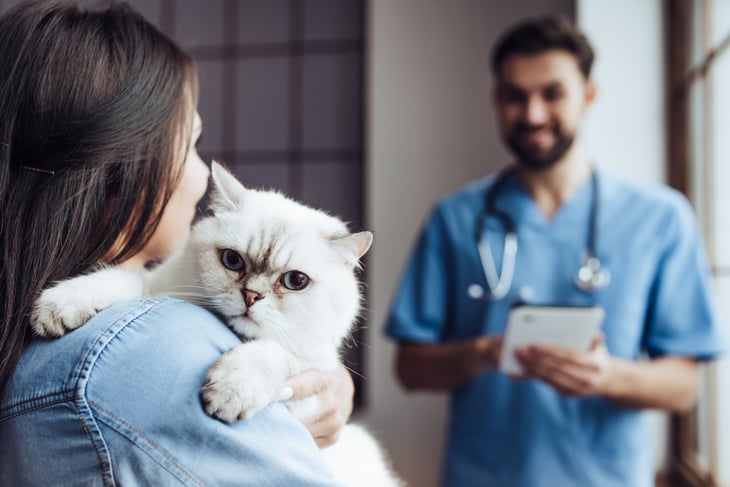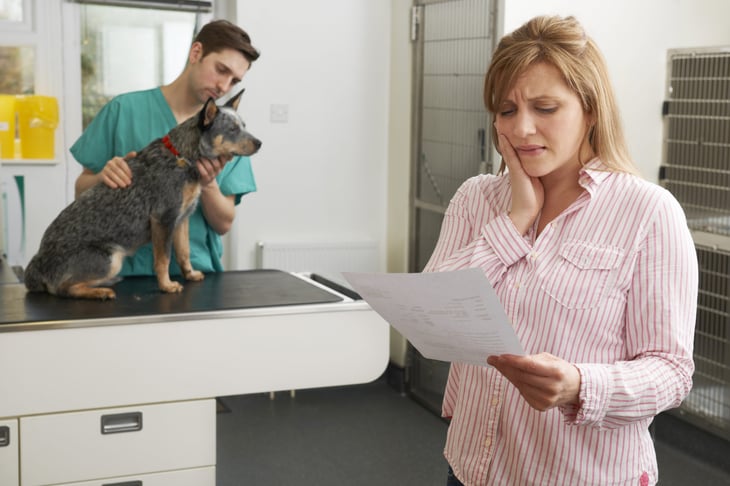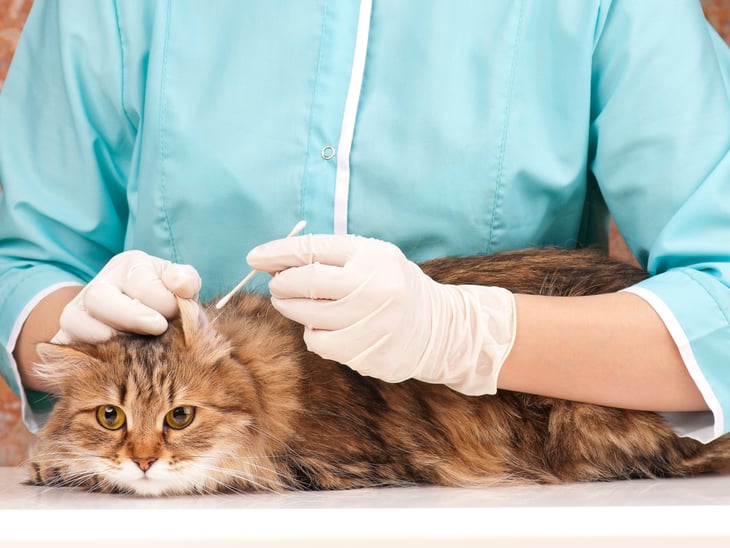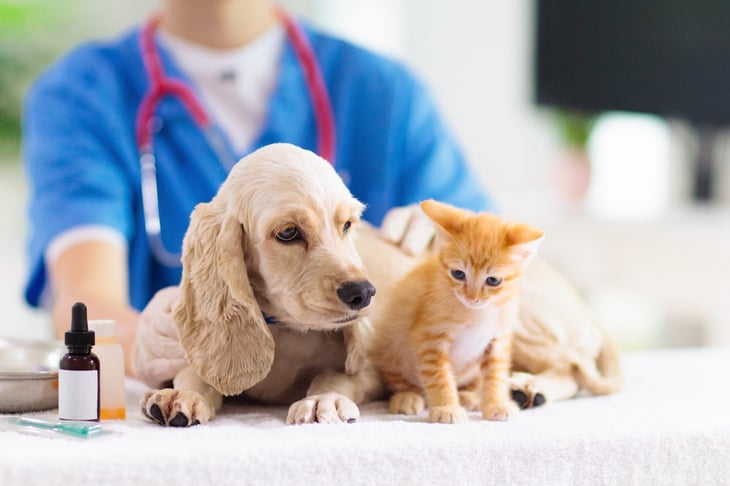
Editor's Note: This story originally appeared on Living on the Cheap.
When a close friend had a pacemaker implanted in her ailing Boston terrier, I was astounded. I knew that my friend loved her dog and that she could well afford that level of medical care, but the five-figure price tag of the pacemaker, surgery and follow-up still left me reeling.
I asked myself what the average person, someone who does have budget concerns, would do if a beloved pet (my grand-dog, for instance) needed expensive medical care. I learned that certain organizations offer help to pet owners who can’t afford necessary but costly treatments.
Here are ways to find cheaper health care for your pets.
1. Find grants or charities to help cover costs

RedRover offers grants to pet owners in need and also has a directory of sites on which grants and other assistance may be found. It’s designed to fill small gaps in funding that are keeping an animal from getting care.
The Pet Fund also offers assistance to owners who cannot afford necessary, non-urgent veterinary care.
2. Ask your vet for a discount or payment plan

If you already have a vet you trust but are suddenly hit with the need for an expensive procedure you can’t afford, ask if he or she can help in any way, either with a discount or an extended payment plan.
3. Seek out discounted routine care

Local animal welfare organizations, rescue groups and shelters often provide low-cost vaccinations, spaying and neutering, and other routine procedures.
Petfinder has a list. The American Society for the Prevention of Cruelty to Animals also has a list of low-cost programs for spaying or neutering your pet.
Experts urge pet owners to spay females prior to their first heat cycle because this prevents uterine infections and uterine cancer and nearly eliminates the risk of breast cancer.
Neutering males prevents testicular cancer and enlargement of the prostate gland and reduces the risk of perianal tumors.
4. Check out veterinary schools

Procedures are performed by students, but they are always supervised by a fully qualified veterinarian. The American Veterinary Medical Association (AVMA) has a list of accredited veterinary colleges, so check to see if there is one near you.
5. Shop wisely for prescriptions

If you’re buying those from your vet, compare the prices with those at online sites like 1-800-PetMeds and Pet Care RX. If you see a big difference in price, ask your vet if he or she can offer competitive prices.
If you’re a Costco member, did you know that your membership also gets you access to discounted pet medications?
If you decide to buy your meds online, make sure you patronize only reputable sites like those mentioned here. The U.S. Food and Drug administration warns that some companies sell counterfeit or expired drugs.
6. Take steps to keep your pet healthy

One way is to schedule regular checkups and make sure that necessary vaccinations are done at the right time.
Another is to prevent the kind of food-borne (or plant-borne) illnesses that happen at home simply by dangerous foods and toxic substances way from your pet. The ASPCA has a list of foods you should never share with your pet as well as a list of toxic plants.
With regular common-sense care your pet can avoid common mishaps.
And don’t forget to give your pet regular tooth brushing, nail and paw care, and grooming.
7. Find a vet before an emergency happens

If your pet has never seen a veterinarian, don’t wait until you have a sudden emergency, when you may have no choices beyond expensive emergency care.
Choose a vet, either in private practice or at a veterinary hospital, so you will have someone to consult when the need arises.
8. Consider insurance

Some pet owners prefer to think ahead and purchase pet insurance. The ASPCA offers insurance policies for both cats and dogs, as do other reputable providers, including Costco.
These are not cheap, so if you are considering coverage, the ASPCA recommends that you ask the following questions:
- How much does the plan cost?
- What will affect your reimbursement?
- Is wellness coverage available?
- How much experience does the provider have?
- What will the insurer require of you and your vet when your pet needs care?





Add a Comment
Our Policy: We welcome relevant and respectful comments in order to foster healthy and informative discussions. All other comments may be removed. Comments with links are automatically held for moderation.